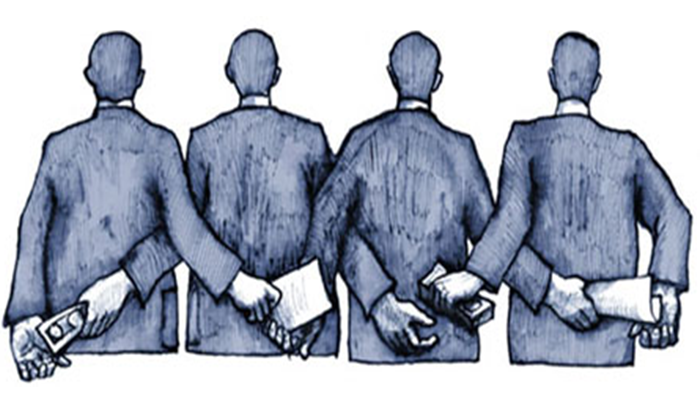In a country where the police and justice system are largely perceived as corrupt and ineffective, many Nigerians have resorted to vigilantism and jungle justice to balance the scales. But as expected, in the court of public opinion where sentimentality and frustration run high, the quest for justice can become perverted, if not overtly partial.
Take road accidents for instance. Motorists have been eternally typecast as villains. It doesn’t matter whether the pedestrian was jay-walking or the bicyclist was riding blindfolded, the fault will be laid at the feet of the car owner – the oppressor of the lowly and the enemy of progress.
I remember a story narrated by Peter, a taxi driver whose brother was involved in a road accident in their village that claimed the life of a motorcyclist and his passenger. According to Peter, the motorcycle failed to stop at an intersection linking the minor road to the expressway, and rode smack into his brother’s car. Such accidents are rife in cities across Nigeria, contributing to the banishment of okadas (commercial motorcycles) to city margins and their subsequent replacement with slower motorised rickshaws.
A fatal road accident is every Nigerian motorists’ nightmare as mobs have been known to brutalise and immolate drivers (and sometimes passengers) in their vehicle before questions are asked. It’s for this reason that some motorists hit and run. Others like Peter’s brother, quickly seek sanctuary in a nearby a police station, where they will inevitably have to bail themselves and the car out after settling burial expenses with the victim’s community. No easy feat for most in a country were funerals are unnecessarily expensive, and as such an avenue for surviving family members to demand excessive sums in compensation. Never mind that their dead would most likely never have earned that figure over their entire lifespan.
Now when accidents involve two automobiles, the driver of the sleeker car gets less sympathy, notwithstanding who was at fault, a scene I witnessed at a junction. Neither the screaming red brake lights nor the traffic warden’s white-gloved palm up could stop the rickety truck from ramming into the bumper of the SUV. As expected, an argument ensued, the usual crowd of nothing-doers flocked around the vehicles to proffer unsolicited opinions, and then the police arrived.
In the final analysis, three options emerged. The crowd reasoned the SUV driver should pay for damages on both cars on the account that he could afford to. The police suggested the drivers park their vehicles in the police station until the matter was resolved. Parking was a means of extorting money from both parties, since, as an unwritten rule, cars were charged each day they remained at the station. The third was for the SUV driver to swallow the bitter fact he’d have to cough up the money to fix his car, since car insurance policies are a rarity in Nigeria and a court case could languish in the legal system for years.
Selective justice, where the poor are painted as innocent victims or saints by the largely impoverished population, is nothing more than a case of good old classism. Granted, the poor are immensely impacted by corruption and whatever ills the Nigerian society can dish out, but lest we forget they’re also active participants in perpetuating their circumstances. Corrupt politicians, who win elections by handing out bags of rice and phone recharge cards in exchange for votes, would be a thing of the past if the poor eschewed instant gratification for competent candidates.
The lower class, which makes up more than half the population, isn’t helpless. They can, as posited in George Orwell’s 1984 , upend the entire socio-political and economic structure to birth a more equal and humane society if they’re inclined. Still, I’m afraid that this theory may not apply to Nigeria. Ask a random person from the lower class what they would do if given the reins of the country, and their answer – accompanied by a sly smirk – will most likely be: “Ah, I go chop money nah.” An answer no different than one coming from a middle or upper-class person.
A convenient example of a person from the lower class who made it to the top is Nigeria’s former president Goodluck Jonathan, who claims to have walked to school without shoes as a child. Yet despite his humble beginnings, his presidency was characterized by poor governance and gross mismanagement of Nigeria’s treasury.
In the same vein, Niger-Delta militants, who took up arms to protest pervasive poverty and the continuous degradation of their land and water by oil spills, quickly forgot their struggle after they were awarded lucrative contracts to guard oil pipelines they once targeted. With their newfound wealth, they built mansions and bought SUVs while their brethren continue to inhale noxious fumes from incessant gas-flaring.
The tendency of the lower class to view car-owning Nigerians as an extension of the ruling class – and, as such, Voodoo dolls on which to vent their frustrations – is neither here nor there. Not if during elections they hire themselves out as goons to politicians and sell their votes to the highest bidder. If they channelled their resentment appropriately and positively, rather than begrudge the ordinary Nigerians struggling to make a living, chances are their lot would improve tremendously.
BY SHAYERA DARK

